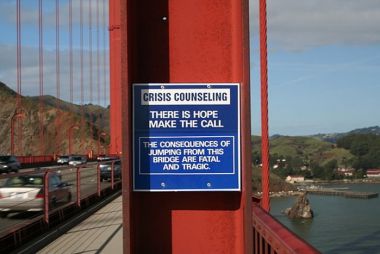Will people who commit suicide go to hell? Most Christians in America don't think so

Although Christian teachings say that only God can decide when and how a person should die, this has not prevented most Americans, including Christians, from believing that suicide will not send a person to hell.
A recent research conducted by Nashville-based LifeWay Research, one of the most respected Christian research organisations in the world, showed that more than six in every 10 Americans say that killing one's self will not result in eternal damnation, according to a Charisma News report.
Only 23 percent of the 1,000 Americans surveyed through phone interviews said that people who take their own lives will end up in hell.
Christians (27 percent), particularly evangelicals (32 percent), however, have a slightly higher tendency to believe that people who commit suicide will go to hell.
The study also found out that most Roman Catholics (63 percent) and Protestants (54 percent) think suicide does not equate to damnation.
Scott McConnell, LifeWay Research vice president, explained that this prevailing belief that suicide will not send a person to hell is based generally on teachings about God's mercy.
"The finality of suicide makes people wonder about its consequences. Most churches teach suicide is wrong, but many also acknowledge God's mercy and sovereignty," McConnell said.
He added that people tended to be more compassionate towards family members and relatives of those who commit suicide.
"Americans are responding with compassion to a tragedy that touches many families. For example, as researchers learn more about the effects of mental illness, people may be more likely to react to suicide with mercy," he explained.
As for the perception towards those who take their own lives, fewer than 4 in 10 Americans (36 percent) said that people who commit suicide are selfish. Again, Christians are more inclined to take the contrary view.
Nevertheless, more than half of Americans consider suicide as an epidemic in the United States. The millennial generation, or those 25 to 34 years old, tended to express deeper concern about this epidemic.











